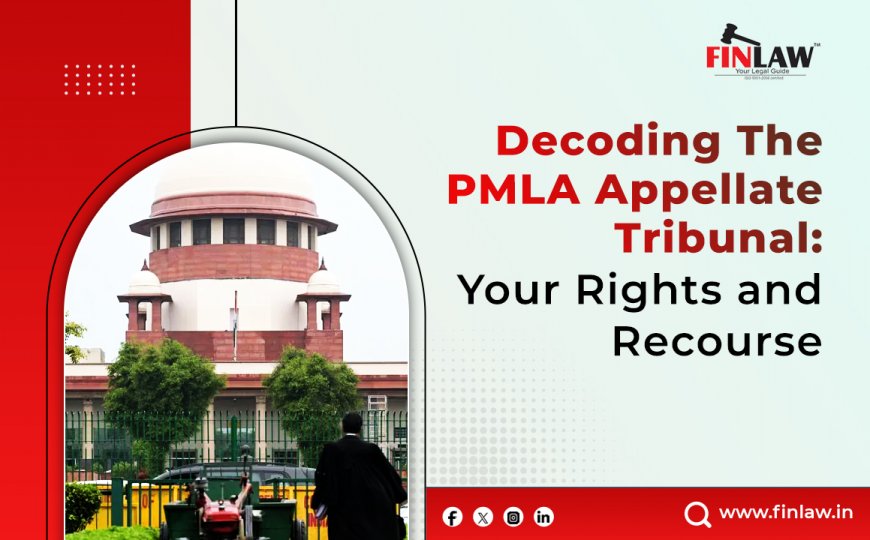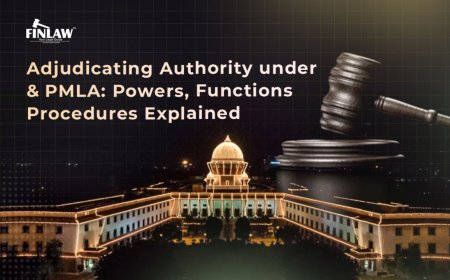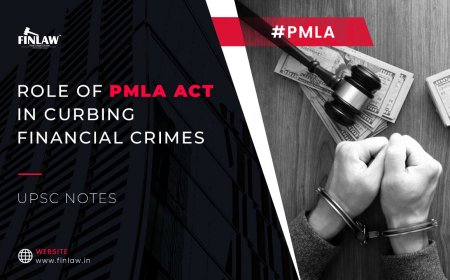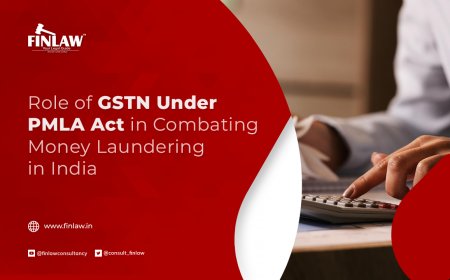Decoding the PMLA Appellate Tribunal: Your Rights and Recourse
Learn about the PMLA Appellate Tribunal's role, powers, and processes to appeal PMLA orders. Safeguard your rights with this comprehensive guide.

The Prevention of Money Laundering Act, 2002 (PMLA), is a pivotal legislation in India aimed at combating the menace of money laundering and ensuring that the economic health of the nation remains robust. Central to the enforcement and adjudication mechanisms of this Act is the PMLA Appellate Tribunal, a statutory body that provides individuals and entities with a platform to appeal against orders related to the attachment or confiscation of properties under the Act. This article delves into the significance, structure, powers, and procedures of the PMLA Tribunal, ensuring you’re well-informed about your rights and recourse.
Understanding the PMLA Appellate Tribunal
The PMLA Appellate Tribunal, established under Section 25 of the PMLA, serves as the primary forum for appeals against decisions made by the Adjudicating Authority and other authorities under the Act. This ensures a structured and fair process for individuals or entities seeking redressal. It plays a vital role in balancing the objectives of the PMLA and safeguarding the rights of affected parties.
Composition of the Tribunal
The PMLA Tribunal comprises a Chairperson and other members appointed by the Central Government. The Chairperson is typically a former Judge of the Supreme Court or a High Court, ensuring legal expertise and credibility. Additional members may include legal and financial experts to provide a holistic perspective on cases involving financial crimes.
Jurisdiction and Powers of the PMLA Appellate Tribunal
The Appellate Tribunal PMLA has extensive jurisdiction and powers to adjudicate appeals. These include:
-
Hearing Appeals: Individuals or entities aggrieved by an order of the Adjudicating Authority can file an appeal within 45 days of receiving the order.
-
Review of Evidence: The Tribunal is empowered to review all evidence, adhering to principles of natural justice rather than being confined to the procedural norms of the Code of Civil Procedure, 1908.
-
Passing Orders: Based on its findings, the Tribunal can confirm, modify, or set aside the order issued by the Adjudicating Authority.
-
Stay of Proceedings: In appropriate cases, the Tribunal can stay the enforcement of an order pending the disposal of the appeal.
Role of the PMLA Appellate Tribunal
The PMLA Appellate Tribunal plays a critical role in the implementation of the PMLA by ensuring checks and balances in the enforcement process. Its primary functions include:
-
Ensuring Accountability: The Tribunal acts as an oversight body to review decisions made by the Adjudicating Authority and other enforcement agencies.
-
Providing a Platform for Redressal: It safeguards the rights of individuals and entities by providing them an opportunity to contest adverse orders.
-
Setting Precedents: Through its decisions, the Tribunal clarifies ambiguities in the PMLA and sets benchmarks for enforcement and adjudication.
-
Upholding Justice: The Tribunal ensures adherence to the principles of natural justice, preventing arbitrary actions by enforcement agencies.
Key Considerations for Appealing Before the PMLA Appellate Tribunal
When filing an appeal, it is crucial to consider the following:
-
Grounds for Appeal:
-
Clearly identify the errors or issues in the original order.
-
Ensure the appeal is supported by substantial evidence and legal arguments.
-
Timelines:
-
Appeals must be filed within the stipulated time frame of 45 days from the receipt of the order.
-
Delays must be justified with valid reasons to seek condonation.
-
Legal Representation:
-
Engage experienced legal counsel familiar with PMLA provisions to strengthen your case.
-
Documentation:
-
Ensure all relevant documents, including the order under challenge, proof of payment of fees, and supporting evidence, are submitted in proper format.
-
Costs Involved:
-
Be prepared to bear the prescribed fees for filing the appeal, as specified under the Prevention of Money-laundering (Appeal) Rules, 2005.
When to Approach the PMLA Appellate Tribunal
It is advisable to approach the PMLA Tribunal under the following circumstances:
-
Adverse Orders by Adjudicating Authority: If the Adjudicating Authority passes an order attaching, confiscating, or freezing properties that you believe to be unjust or unwarranted.
-
Violation of Procedural Safeguards: When enforcement agencies fail to adhere to procedural safeguards prescribed under the PMLA.
-
Challenge to Provisional Attachment: If you are aggrieved by a provisional attachment order issued under Section 5 of the PMLA.
-
Appeals Against Penalties: In cases where penalties are imposed for non-compliance with PMLA requirements.
Challenging PMLA Orders Before the PMLA Appellate Tribunal
To effectively challenge orders under the PMLA, follow these steps:
-
Analyze the Order:
-
Carefully review the order to identify legal and factual grounds for challenge.
-
Determine whether the order complies with the PMLA’s procedural and substantive requirements.
-
Prepare the Appeal:
-
Draft a comprehensive appeal, articulating your arguments and grounds for relief.
-
Ensure the appeal aligns with the format and guidelines prescribed by the Tribunal.
-
Seek Interim Relief:
-
If the order adversely impacts your operations or property, request an interim stay from the Tribunal.
-
Present Your Case:
-
During the hearing, present your case effectively, backed by evidence and legal precedents.
-
Follow Up:
-
Monitor the progress of your appeal and comply with any directions issued by the Tribunal.
Procedure for Filing an Appeal
Navigating the appeal process in the PMLA Appellate Tribunal requires adherence to specific steps:
-
Drafting the Appeal:
-
The appeal should clearly outline the grounds of objection and the relief sought.
-
It must include all relevant documents, including the original order and supporting evidence.
-
Timely Submission:
-
Appeals must be filed within 45 days of receiving the order. A delay may be condoned if sufficient cause is shown.
-
Payment of Prescribed Fee:
-
A mandatory fee, as outlined in the Prevention of Money-laundering (Appeal) Rules, 2005, must accompany the appeal.
-
Submission:
-
The appeal and supporting documents must be submitted to the Registrar of the Appellate Tribunal. Ensure proper indexing for smoother processing.
Role of the PMLA Appellate Tribunal in Ensuring Justice
The PMLA Tribunal is integral to India’s anti-money laundering framework. Its role extends beyond merely adjudicating appeals to setting critical precedents that influence the interpretation and application of the PMLA. By ensuring transparency and upholding natural justice, the Tribunal bridges the gap between enforcement agencies and affected parties.
Notable Cases Adjudicated by the PMLA Tribunal
Over the years, the Appellate Tribunal PMLA has ruled on landmark cases that highlight its role in shaping the legal framework around money laundering. For instance:
-
Mahanivesh Oils & Foods Pvt. Ltd. vs. Directorate of Enforcement: The Tribunal’s decision clarified the scope of provisional attachment under Section 5 of the PMLA.
-
B. Rama Raju vs. Adjudicating Authority: This case underscored the importance of adhering to procedural safeguards when confiscating assets.
Such cases reinforce the Tribunal’s commitment to fairness and its critical role in India’s fight against financial crimes.
Challenges Faced by the PMLA Tribunal
While the PMLA Appellate Tribunal has been instrumental in ensuring justice, it faces several challenges:
-
Heavy Caseload: The increasing number of cases filed under the PMLA has resulted in a backlog, delaying the resolution of appeals.
-
Lack of Resources: Limited infrastructure and manpower can hinder the Tribunal’s efficiency.
-
Complexity of Cases: Financial crimes often involve intricate transactions, requiring detailed analysis and expertise.
Recent Amendments and Their Impact
The PMLA has undergone several amendments to strengthen its provisions. Notable changes include:
-
Expanding the definition of proceeds of crime to include properties indirectly obtained from criminal activity.
-
Allowing attachment of properties even outside India, subject to bilateral agreements.
These amendments have implications for the functioning of the PMLA Tribunal, necessitating an updated approach to adjudication.
Conclusion
The PMLA Appellate Tribunal is a cornerstone of India’s efforts to combat money laundering. By offering a fair platform for appeals and ensuring adherence to legal principles, it balances the rights of individuals and the state’s interest in tackling financial crimes. Whether you’re an individual or an entity facing proceedings under the PMLA, understanding the Tribunal’s processes and powers is crucial to protecting your rights and ensuring a fair hearing.
By leveraging its expertise and commitment to justice, the PMLA Tribunal continues to uphold the rule of law while contributing to the integrity of India’s financial systems.
What's Your Reaction?



















